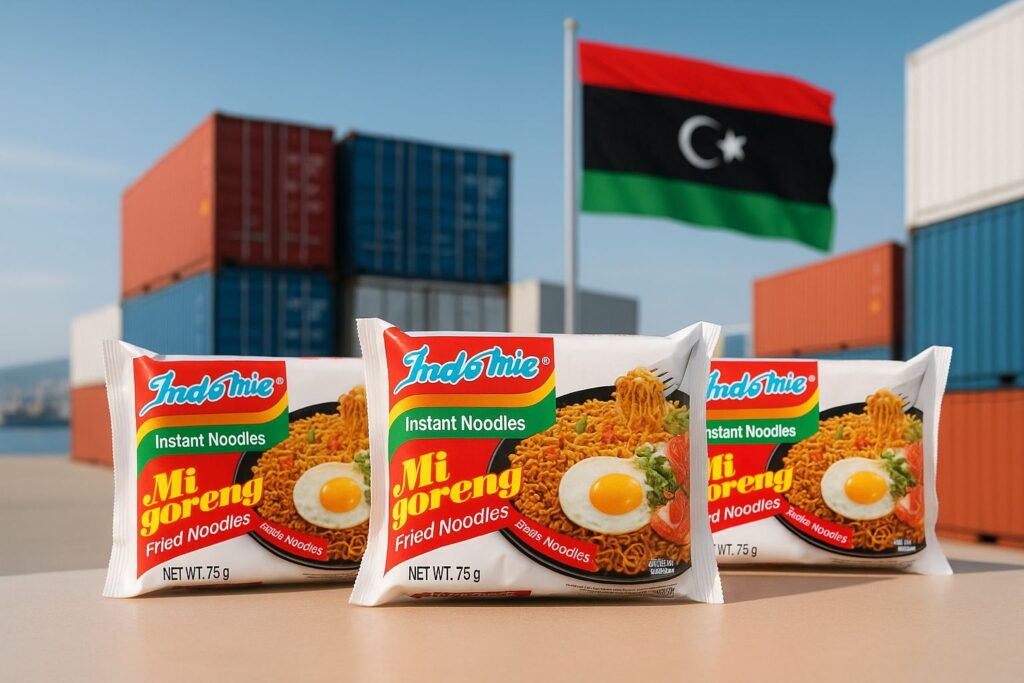🇱🇾 The Ultimate Guide to Importing Indomie to Libya: Your Gateway to the Libyan Market
Welcome to your definitive guide to conquering the Libyan market with one of the world’s most beloved instant noodle brands: Indomie. If you’re looking to import Indomie to Libya, you’ve come to the right place. This comprehensive A-Z resource, brought to you by Eurovan Trading, a leading independent exporter with 25 years of experience in the FMCG industry, will equip you with everything you need to know to successfully navigate the import process and capitalize on the immense popularity of Indomie in Libya.
As your trusted partner, we understand the nuances of the Libyan market and the intricacies of international trade. We specialize in exporting a wide range of branded and non-branded FMCG products and cosmetics from Egypt to clients across the globe. Our mission is to empower your business with the products and expertise you need to thrive in the competitive Libyan landscape. This guide is a testament to our commitment to your success, providing you with in-depth knowledge, actionable insights, and the support of a seasoned export manager, Mr. Darrell Lock.
| Contact Information | Details |
|---|---|
| Export Manager | Mr. Darrell Lock (US Citizen, 20 years FMCG export experience) |
| WhatsApp / Mobile | +201204440720 |
| [email protected] | |
| Address | 5 el-Sheikh kamel Khadr ST– el Safarat distract Nasr city, Cairo , Egypt |
| Call to Action | Contact us today to start importing Indomie to Libya! |
🍜 The Unstoppable Rise of Indomie in Libya: A Market Analysis
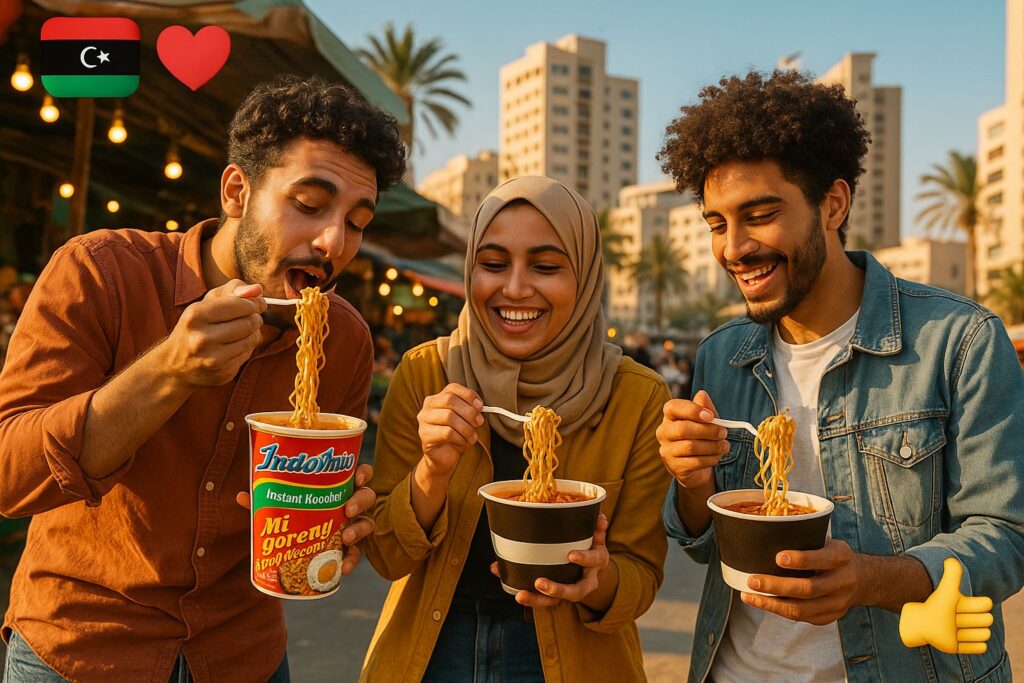
The global phenomenon of Indomie has not only reached the shores of Libya but has firmly embedded itself in the nation’s culinary culture. The demand for instant noodles, and Indomie in particular, has witnessed a meteoric rise in recent years, transforming it from a simple convenience food into a beloved staple for people of all ages. This section delves into the factors driving Indomie’s popularity in Libya, exploring the market dynamics, consumer behavior, and the vast opportunities that await savvy importers.
Why is Indomie so popular in Libya?
The cultural impact of instant noodles in North Africa has been profound, and Libya is no exception. Indomie’s appeal lies in its affordability, convenience, and delicious taste, making it an ideal meal solution for a wide range of consumers. From busy students and professionals to families looking for a quick and satisfying meal, Indomie has become a household name. The brand’s clever marketing strategies and its ability to adapt to local tastes have further solidified its position as the go-to instant noodle brand in the region.
The Libya instant noodles market is a burgeoning sector with significant growth potential. According to recent market analysis, the demand for instant noodles in Libya is projected to continue its upward trend, driven by factors such as urbanization, a growing young population, and the increasing need for convenient food options. This presents a golden opportunity for businesses to import Indomie to Libya and tap into this lucrative market. The brand’s strong market share and unwavering popularity make it a low-risk, high-reward investment for any importer.
Consumer demographics and preferences for Indomie in Libya.
Understanding the consumer base is crucial for any successful import venture. In Libya, Indomie’s appeal transcends demographics, attracting a diverse range of consumers. Young people, in particular, are avid consumers of Indomie, drawn to its trendy image and the wide variety of flavors available. The brand has also successfully captured the family market, with many households stocking up on Indomie as a quick and easy meal option for children and adults alike.
When it comes to flavors, Libyan consumers have shown a preference for both classic and spicy varieties of Indomie. The brand’s ability to cater to these diverse tastes has been a key factor in its success. From the classic chicken and beef flavors to the fiery hot and spicy options, there is an Indomie flavor to suit every palate. The role of social media in Indomie’s popularity cannot be overstated. Platforms like Facebook, Instagram, and TikTok have become virtual marketplaces for Indomie enthusiasts, with users sharing recipes, creating memes, and engaging in lively discussions about their favorite noodle brand. This organic, user-generated content has played a significant role in amplifying Indomie’s reach and cementing its status as a cultural icon in Libya.
In-depth Analysis of Indomie’s Popularity in Importing Indomie to Libya
The cultural assimilation of Indomie in Libya is a fascinating case study in globalization and consumer behavior. The nation, with its youthful demographic and increasing urbanization, has proven to be fertile ground for the growth of the instant noodle market. The convenience of a hot, satisfying meal in minutes resonates deeply with the fast-paced lifestyle of modern Libyans. It is not merely a food item; it is a cultural touchstone, a symbol of modern life, and a testament to the power of a brand that understands its customers.
The affordability of Indomie is a significant factor in its widespread adoption. In a country where economic fluctuations can impact household budgets, Indomie provides a reliable and cost-effective meal solution. This has made it a staple in homes, university dorms, and even workplaces. The brand has successfully positioned itself as a product for everyone, transcending social and economic barriers.
Furthermore, the consistency of Indomie’s quality and taste has built a strong sense of brand loyalty among Libyan consumers. They know that they can rely on Indomie for a delicious and satisfying meal every time. This trust has been cultivated over years of positive experiences, word-of-mouth recommendations, and effective marketing Importing Indomie to Libya campaigns.
The Geopolitical and Economic Context of the Libyan Market
Libya’s unique geopolitical and economic context has also played a role in the rise of Indomie. The country’s reliance on imported goods has created a market that is open to international brands. The challenges of local food production have further amplified the demand for imported food products that are affordable, have a long shelf life, and are easy to prepare.
In this context, Indomie has emerged as a clear winner. Its long shelf life makes it an ideal product for a country where supply chains can be disrupted. Its ease of preparation is a major advantage in a country where access to cooking facilities can be limited. And its affordability makes it accessible to a wide range of consumers, even in times of economic uncertainty.
The recent period of improved political stability and economic growth in Libya has further boosted the demand for consumer goods. As the country continues to rebuild and develop, the demand for products like Indomie is expected to grow even further. This presents a significant opportunity for businesses to import Indomie to Libya and capitalize on the country’s economic recovery.
📜 A-Z Guide to Libya’s Import Regulations for FMCG Products
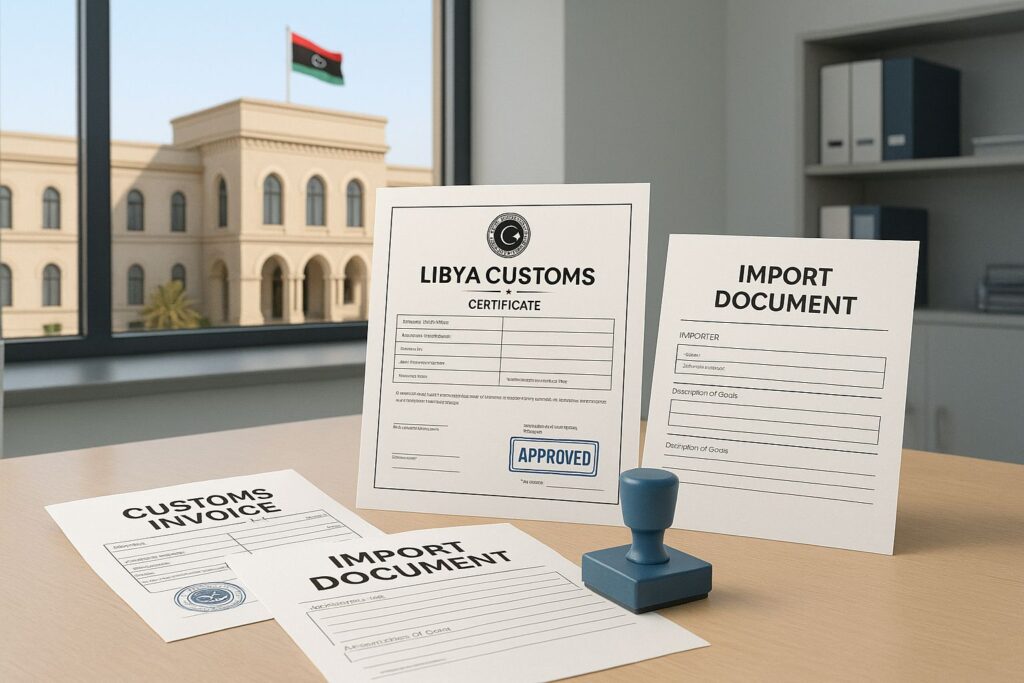
Successfully importing Indomie to Libya requires a thorough understanding of the country’s import regulations. Navigating the complexities of customs procedures, documentation, and food safety standards can be a daunting task, but with the right knowledge and a reliable partner like Eurovan Trading, you can ensure a smooth and hassle-free import process. This section provides a comprehensive A-Z guide to Libya’s import regulations for FMCG products, equipping you with the essential information you need to navigate the Libyan import landscape with confidence.
Essential documentation for importing into Libya.
Proper documentation Importing Indomie to Libya is the cornerstone of any successful import operation. The Libyan authorities require a specific set of documents to be submitted for customs clearance. Failure to provide the correct documentation can result in delays, fines, and even the seizure of your goods. To avoid these pitfalls, it is crucial to work with an experienced exporter who understands the intricacies of Libyan import regulations.
One of the most critical documents required for importing into Libya is the Certificate of Origin. This document certifies the country where the goods were manufactured and is essential for customs clearance. The Certificate of Origin must be certified by the Libyan embassy in the country of export. At Eurovan Trading, we have extensive experience in obtaining and certifying all necessary documentation, ensuring that your shipment complies with all Libyan import requirements.
In addition to the Certificate of Origin, you will also need to provide a commercial invoice and a packing list. The commercial invoice should provide a detailed description of the goods, including their value, quantity, and HS code. The packing list should provide a comprehensive overview of the contents of each package, including their weight and dimensions. These documents are essential for customs valuation and inspection, and it is crucial to ensure that they are accurate and complete.
Understanding Libyan customs procedures and duties.
Navigating Libyan customs procedures can be a complex process, but with the right guidance, it can be a straightforward and efficient experience. The first step is to determine the correct HS code for your products. The Harmonized System (HS) is an international standard for classifying traded goods, and each product is assigned a unique HS code. The HS code for instant noodles is 1902.30, and it is essential to use the correct code on all your documentation to ensure a smooth customs clearance process.
Once you have determined the correct HS code, you will need to calculate the applicable import taxes and fees. Libya imposes a range of taxes and duties on imported goods, including customs duties, service fees, and other taxes. The exact amount of these taxes and fees will depend on the value and type of goods you are importing. At Eurovan Trading, we can provide you with a detailed breakdown of all applicable taxes and fees, ensuring that you have a clear understanding of the total cost of your import.
Navigating Libyan food safety and quality standards.
When importing food products into Libya, it is essential to comply with the country’s strict food safety and quality standards. The Libyan authorities are committed to protecting consumers from unsafe and low-quality products, and they have implemented a range of measures to ensure that all imported food products meet their high standards.
One of the most important requirements for importing food products into Libya is Halal certification. All food products containing meat or animal products must be certified as Halal by a recognized Islamic organization. This is a mandatory requirement, and failure to provide a valid Halal certificate can result in the rejection of your shipment. At Eurovan Trading, we can assist you in obtaining the necessary Halal certification for your Indomie products, ensuring that they comply with all Libyan import requirements.
In addition to Halal certification, you will also need to comply with Libya’s labeling and packaging regulations. All food products must be labeled in Arabic and must include a range of information, such as the product name, ingredients, nutritional information, and country of origin. The packaging must also be durable and must protect the product from damage during transit. At Eurovan Trading, we can ensure that your Indomie products are labeled and packaged in accordance with all Libyan regulations, ensuring a smooth and hassle-free import process.
Deeper Dive into Libyan Import Regulations
While the previous section provided a general overview of Libyan import regulations, a deeper understanding of the specific requirements is crucial for a successful import operation. The Libyan government has implemented a complex and ever-evolving regulatory framework to control the flow of goods into the country. This framework is designed to protect local industries, ensure the safety and quality of imported products, and generate revenue for the government.
One of the key challenges of importing into Libya is the lack of transparency and predictability in the regulatory environment. The rules and regulations can change with little or no notice, making it difficult for businesses to plan and execute their import operations. This is why it is so important to work with an experienced export partner like Eurovan Trading, who has a deep understanding of the Libyan regulatory landscape and can help you navigate the complexities of the import process.
Prohibited and Restricted Items
Libya prohibits the import of a range of items, including alcohol, pork products, and materials that are deemed to be offensive to Islamic culture. The import of certain other items is restricted and requires special permits from the relevant government agencies. These include firearms, explosives, and certain chemicals. It is essential to check the latest list of prohibited and restricted items before you attempt to import any goods into Libya.
Recent Changes in Import Regulations
The Libyan government has recently introduced a number of changes to its import regulations, aimed at streamlining the import process and boosting trade. These changes include the introduction of a new electronic customs clearance system, which is designed to reduce paperwork and speed up the clearance process. The government has also announced plans to review and simplify its import tariff structure, which could lead to lower import duties on a range of goods.
However, it is important to note that the implementation of these changes has been slow and uneven. The new electronic customs clearance system is not yet fully operational, and there is still a great deal of uncertainty about the new tariff structure. This is why it is so important to have a reliable partner on the ground in Libya who can provide you with the latest information and help you navigate the ever-changing regulatory landscape.
Overcoming the Challenges of Importing into Libya
Importing into Libya can be a challenging and complex process, but with the right partner, it can also be a highly rewarding one. Eurovan Trading has a proven track record of success in helping businesses of all sizes to navigate the complexities of the Libyan import market. We have a deep understanding of the local culture, business practices, and regulatory environment, and we can provide you with the support and guidance you need to succeed.
Our team of experienced professionals will work with you every step of the way, from sourcing and procurement to logistics and customs clearance. We will ensure that your shipment complies with all Libyan import regulations, and we will provide you with the latest information and advice to help you make informed decisions. With Eurovan Trading as your partner, you can be sure that your import operation will be a success.
🇪🇬 🇱🇾 Why Eurovan Trading is Your #1 Choice for Exporting Indomie from Egypt to Libya
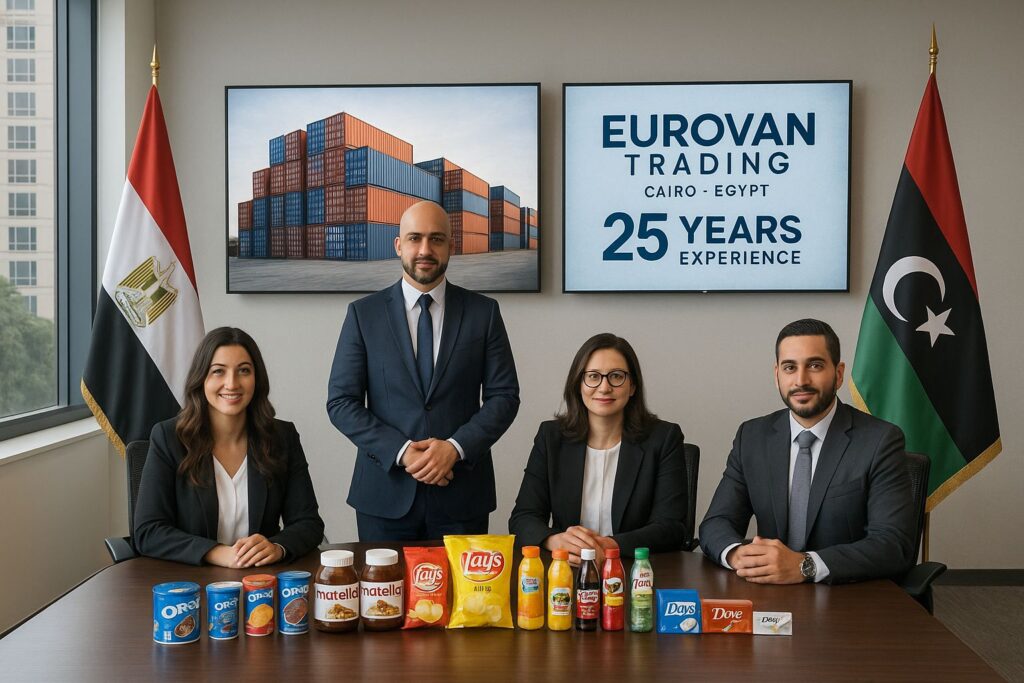
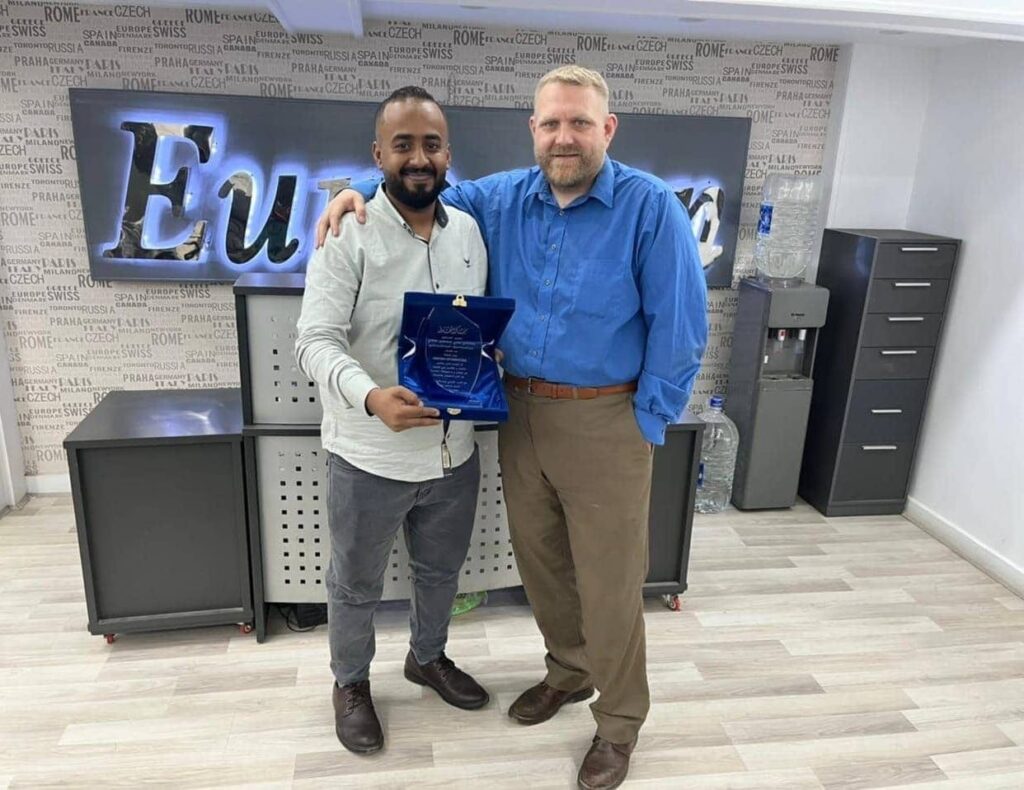
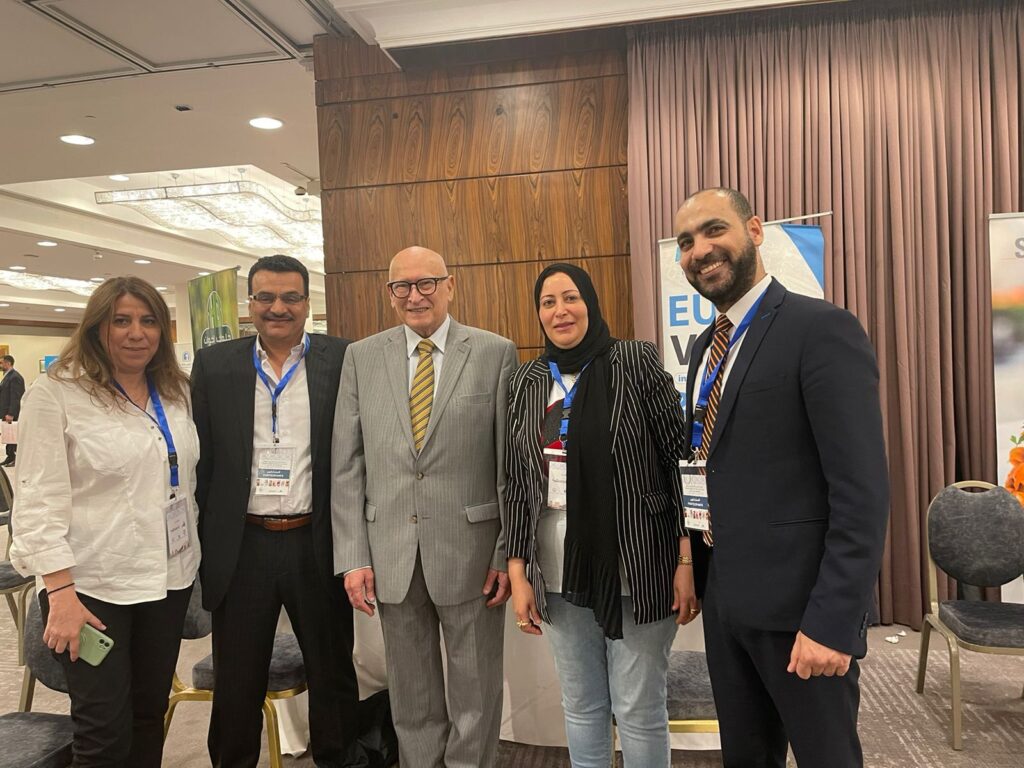

In the dynamic and often challenging world of international trade, choosing the right export partner is paramount to your success. When it comes to exporting Indomie from Egypt to Libya, you need a partner with a proven track record, a deep understanding of the regional market, and an unwavering commitment to your business’s growth. That partner is Eurovan Trading. With 25 years of experience in the FMCG export industry, we have established ourselves as a trusted leader, connecting businesses like yours with the products and opportunities they need to thrive.
25 Years of Experience in FMCG Export.
For a quarter of a century, Eurovan Trading has been at the forefront of the FMCG export industry, building a legacy of excellence and reliability. Our journey began with a simple mission: to bridge the gap between Egyptian manufacturers and international markets, providing our clients with access to high-quality products at competitive prices. Over the years, we have honed our expertise, expanded our network, and solidified our reputation as a leading exporter of branded and non-branded FMCG products and cosmetics.
Our track record of success in the Middle East and Africa speaks for itself. We have successfully navigated the complexities of regional trade, building strong relationships with suppliers, distributors, and government agencies. This has enabled us to provide our clients with a seamless and hassle-free export experience, from sourcing and procurement to logistics and customs clearance. Our deep understanding of the cultural and economic nuances of the region gives us a unique advantage, allowing us to tailor our services to the specific needs of each market.
A Deep Dive into Our Export Process.
At Eurovan Trading, we believe in transparency and efficiency. Our export process is designed to be as straightforward and seamless as possible, ensuring that your Indomie shipment reaches its destination in Libya on time and in perfect condition. From our state-of-the-art warehouse in Egypt to your doorstep in Libya, we handle every aspect of the export process with the utmost care and professionalism.
Our logistics and supply chain expertise is second to none. We work with a network of trusted shipping and logistics partners to ensure that your goods are transported safely and efficiently. We handle all the necessary documentation, including the Certificate of Origin, commercial invoice, and packing list, ensuring that your shipment complies with all Libyan import regulations. Our team of experienced professionals will keep you informed every step of the way, providing you with real-time updates on the status of your shipment.
The “Eurovan Advantage”: Quality, Reliability, and Competitive Pricing.
What sets Eurovan Trading apart from the competition is what we call the “Eurovan Advantage.” This is our unwavering commitment to providing our clients with the highest quality products, the most reliable service, and the most competitive prices in the industry. We understand that your success is our success, and we go above and beyond to ensure that you have everything you need to thrive in the Libyan market.
Sourcing the best Indomie products is our top priority. We work directly with authorized distributors to ensure that you receive genuine, high-quality Indomie products that meet the expectations of your customers. Our commitment to customer satisfaction is at the heart of everything we do. We believe in building long-term relationships with our clients, and we are always available to answer your questions, address your concerns, and provide you with the support you need to grow your business.
The Eurovan Trading Difference: A Partnership for Growth
At Eurovan Trading, we are more than just an exporter; we are a partner in your growth. We understand that our success is intrinsically linked to yours, and we are dedicated to providing you with the tools, resources, and support you need to thrive in the competitive Libyan market. Our 25 years of experience have taught us that a successful export operation is built on a foundation of trust, transparency, and mutual respect. We are committed to building long-term relationships with our clients, and we are always ready to go the extra mile to ensure your satisfaction.
Our team of seasoned professionals is our greatest asset. Led by Mr. Darrell Lock, a US citizen with 20 years of experience in FMCG export, our team brings a wealth of knowledge and expertise to the table. We have a deep understanding of the cultural, economic, and political nuances of the Middle East and Africa, and we are adept at navigating the complexities of international trade. We are fluent in multiple languages, including English and Arabic, which allows us to communicate effectively with our clients and partners across the region.
We believe in a hands-on approach to export management. We will work closely with you to understand your specific needs and objectives, and we will develop a customized export strategy that is tailored to your business. We will provide you with regular updates on the status of your shipment, and we will be available to answer your questions and address your concerns at every step of the process. With Eurovan Trading, you can be confident that you have a dedicated partner who is committed to your success.
🚀 The Egypt-Libya Trade Corridor: A Strategic Advantage for Your Business
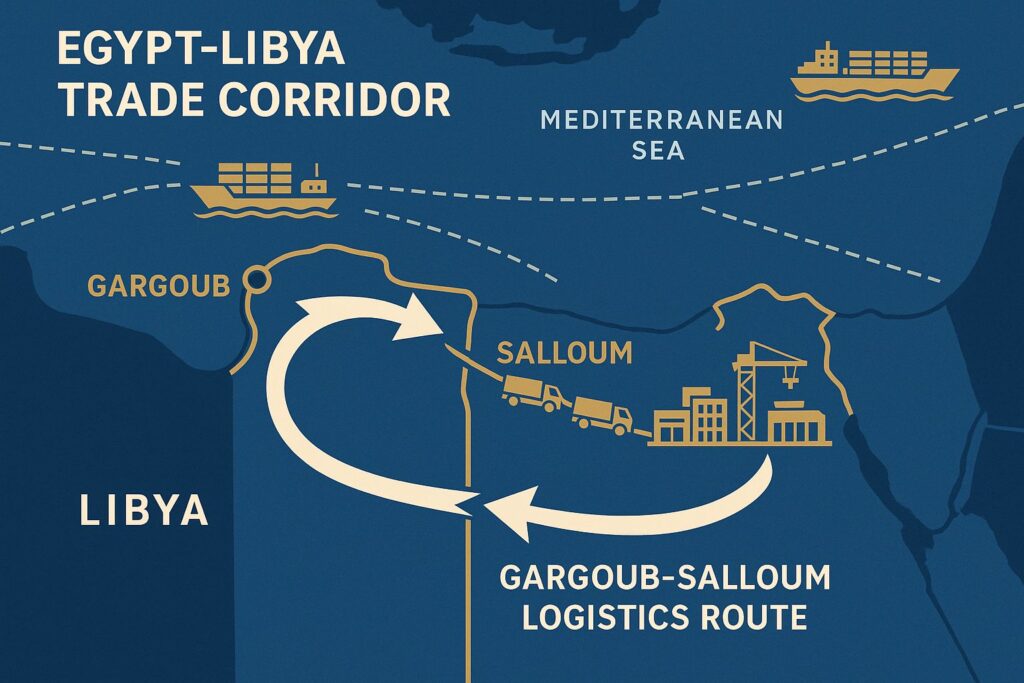
The burgeoning trade relationship between Egypt and Libya presents a wealth of opportunities for businesses looking to expand their reach in the North African market. The establishment of new trade corridors and the strengthening of economic ties between the two nations have created a favorable environment for trade, making it easier and more profitable than ever to export FMCG products from Egypt to Libya.
The new Gargoub-Salloum logistics corridor.
A game-changer for Egypt-Libya trade, the new Gargoub-Salloum logistics corridor is set to revolutionize the way goods are transported between the two countries. This ambitious project will create a seamless and efficient transportation network, significantly reducing shipping times and costs. The corridor will connect the port of Gargoub on the Mediterranean coast with the Salloum land port, creating a direct and strategic route for trade between Egypt and Libya.
For businesses looking to import Indomie to Libya, the Gargoub-Salloum logistics corridor offers a significant strategic advantage. The reduced shipping times will ensure that your products reach the market faster, allowing you to respond more quickly to consumer demand. The lower transportation costs will improve your profit margins, making your business more competitive in the Libyan market. As your export partner, Eurovan Trading is strategically positioned to leverage the benefits of this new trade corridor, providing you with a fast, reliable, and cost-effective shipping solution.
The growing economic ties between Egypt and Libya.
The Gargoub-Salloum logistics corridor is just one example of the growing economic ties between Egypt and Libya. The two nations have signed a series of trade agreements in recent years, aimed at boosting bilateral trade and investment. These agreements have created a more favorable and predictable environment for trade, making it easier for businesses to operate in both countries.
The impact of these trade agreements is already being felt, with a significant increase in trade between Egypt and Libya. The future growth prospects for the Egypt-Libya trade route are incredibly promising, with both governments committed to further strengthening their economic partnership. This presents a golden opportunity for businesses to establish a strong foothold in the Libyan market and capitalize on the growing demand for Egyptian products.
The Egypt-Libya Trade Corridor: A New Era of Opportunity
The strategic importance of the Egypt-Libya trade corridor cannot be overstated. This vital artery of commerce is not just a logistical solution; it is a symbol of the deepening economic and political ties between two of North Africa’s most important nations. The corridor is a key component of Egypt’s ambitious plan to become a regional hub for trade and logistics, and it is set to unlock a new era of opportunity for businesses on both sides of the border.
The development of the Gargoub-Salloum logistics corridor is a testament to the commitment of both the Egyptian and Libyan governments to fostering a more integrated and prosperous region. The corridor will not only reduce transportation costs and transit times but will also create a more secure and reliable supply chain. This will be a major boon for businesses that have been hampered by the logistical challenges of operating in the region.
For businesses looking to import Indomie to Libya, the trade corridor offers a number of significant advantages. The improved infrastructure will allow for the seamless movement of goods, reducing the risk of delays and spoilage. The streamlined customs procedures will reduce the administrative burden on businesses, freeing up time and resources that can be better spent on growing their business. And the increased security will provide peace of mind, knowing that their valuable cargo is protected from theft and damage.
But the benefits of the trade corridor extend far beyond logistics. The corridor will also create a more favorable environment for investment, encouraging businesses to establish a long-term presence in the region. This will lead to the creation of new jobs, the transfer of skills and knowledge, and the development of a more vibrant and diversified economy. As a business that is committed to the long-term growth of the Libyan market, Eurovan Trading is excited about the opportunities that the trade corridor will create.
💄 Expanding Your Business in Libya: Beyond Indomie
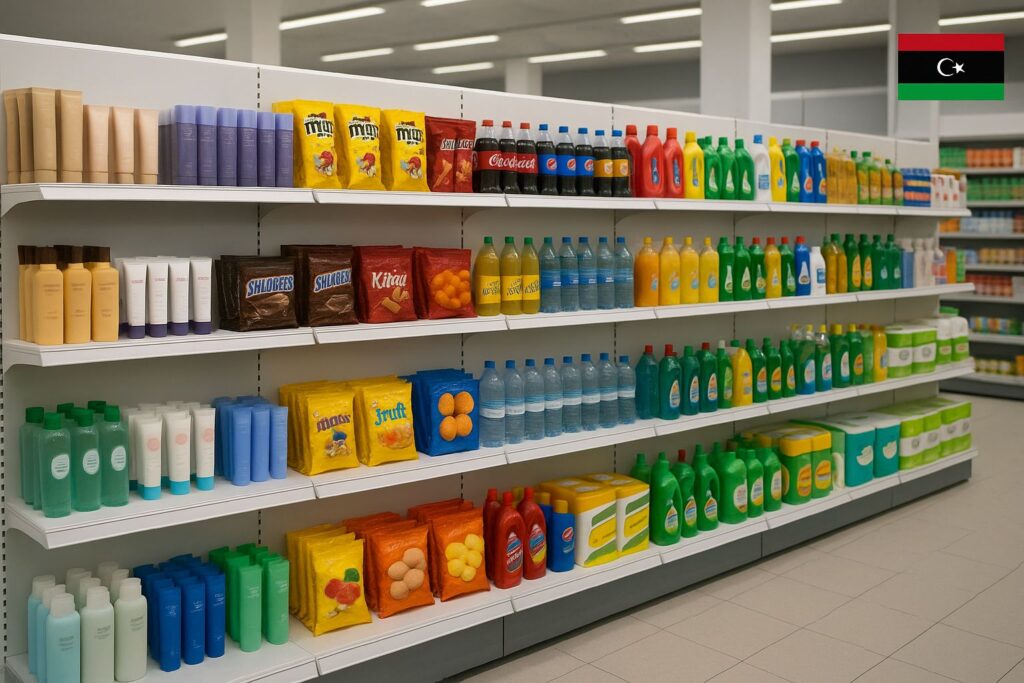
While the opportunity to import Indomie to Libya is undoubtedly a lucrative one, it is merely the tip of the iceberg when it comes to the potential of the Libyan FMCG market. As a seasoned exporter with a diverse portfolio, Eurovan Trading can help you expand your business beyond instant noodles and tap into other high-demand sectors. From branded and non-branded cosmetics to a wide range of other FMCG products, we can provide you with the products and expertise you need to build a thriving and diversified business in Libya.
Opportunities in the Libyan cosmetics market.
The Libyan cosmetics market is a vibrant and growing sector, with a strong demand for both branded and non-branded products. Libyan consumers are increasingly sophisticated in their tastes, seeking out high-quality cosmetics that cater to their specific needs and preferences. This presents a significant opportunity for businesses to import a wide range of cosmetics from Egypt, a country renowned for its thriving cosmetics industry.
Branded and non-branded cosmetics from Egypt offer a compelling value proposition for Libyan consumers. Egyptian brands are known for their quality and affordability, making them an attractive alternative to more expensive international brands. At Eurovan Trading, we have strong relationships with a wide range of Egyptian cosmetics manufacturers, allowing us to source a diverse range of products at competitive prices. Whether you are looking to import well-known brands or develop your own private label, we can provide you with the products and support you need to succeed in the Libyan cosmetics market.
Market trends and consumer preferences in the Libyan cosmetics market are constantly evolving. Our team of experts closely monitors these trends, providing you with valuable insights into the latest products, ingredients, and marketing strategies. From skincare and haircare to makeup and fragrances, we can help you identify the products that are most in-demand and develop a winning strategy for the Libyan market.
Other FMCG products with high demand in Libya.
In addition to Indomie and cosmetics, there is a wide range of other FMCG products with high demand in Libya. As the country continues to stabilize and rebuild, the demand for consumer goods is on the rise. This presents a significant opportunity for businesses to import a diverse range of products and build a comprehensive FMCG portfolio.
Confectionery, beverages, and household goods are just a few of the product categories with high growth potential in Libya. Libyan consumers have a sweet tooth, and there is a strong demand for a wide range of confectionery products, from chocolates and candies to biscuits and cakes. The beverage market is also a promising sector, with a growing demand for juices, soft drinks, and energy drinks. Household goods, such as cleaning products and personal care items, are also in high demand as consumers seek to improve their quality of life.
Sourcing and exporting a diverse range of products with Eurovan Trading is a seamless and hassle-free experience. Our extensive network of suppliers and our deep understanding of the Libyan market allow us to provide you with a one-stop solution for all your FMCG import needs. We can help you identify the products with the highest potential, negotiate the best prices, and handle all the logistics of exporting from Egypt to Libya. With Eurovan Trading as your partner, you can build a diversified and profitable FMCG business in the Libyan market.
Seizing the Opportunity: A Diversified FMCG Strategy for Libya
While Indomie is a powerful entry point into the Libyan market, a truly successful and sustainable business is built on a diversified portfolio of products. The Libyan consumer is becoming increasingly discerning, and their tastes are constantly evolving. To stay ahead of the curve, it is essential to have a deep understanding of the market and to be able to adapt your product offerings to meet the changing needs of your customers.
At Eurovan Trading, we specialize in helping our clients to develop and execute a diversified FMCG strategy for the Libyan market. We have a deep understanding of the local consumer landscape, and we can provide you with valuable insights into the latest trends, preferences, and purchasing habits. We can help you to identify the product categories with the highest growth potential, and we can source a wide range of high-quality products from our extensive network of Egyptian manufacturers.
Our portfolio of FMCG products extends far beyond instant noodles and cosmetics. We can source a wide range of food and beverage products, including confectionery, snacks, juices, and dairy products. We can also source a wide range of household goods, including cleaning products, personal care items, and paper products. Whatever your business needs, we can provide you with a one-stop solution for all your FMCG import needs.
We can also help you to develop your own private label products. This is a great way to build your brand and to differentiate yourself from the competition. We can work with you to develop a unique product concept, and we can source a reliable manufacturer to produce your products to the highest standards of quality. With our help, you can create a brand that resonates with Libyan consumers and that will stand the test of time.
🤔 Frequently Asked Questions about Importing Indomie to Libya

We understand that you may have many questions about the process of importing Indomie to Libya. To help you make an informed decision, we have compiled a list of frequently asked questions. If you have any other questions, please do not hesitate to contact us. Our team of experts is always ready to assist you.
What is the minimum order quantity for Indomie?
The minimum order quantity (MOQ) for Indomie varies depending on the specific product and packaging. We offer flexible MOQs to accommodate the needs of businesses of all sizes. Please contact us for a detailed quote and to discuss your specific requirements.
What are the payment terms?
We offer a range of flexible payment terms to suit your needs. Our standard payment terms are a 50% down payment upon confirmation of the order and the remaining 50% upon delivery. We also offer other payment options, such as letters of credit (L/Cs), for larger orders. Please contact us to discuss the payment terms that are most suitable for your business.
How long does shipping take from Egypt to Libya?
Shipping times from Egypt to Libya can vary depending on the shipping method and the port of destination. However, with the new Gargoub-Salloum logistics corridor, we are able to offer significantly reduced shipping times. On average, shipping takes between 5 and 10 business days. We will provide you with a detailed shipping schedule upon confirmation of your order.
Can you handle customs clearance in Libya?
Yes, we can handle all aspects of customs clearance in Libya. Our team of experienced professionals has a deep understanding of Libyan customs regulations and procedures. We will ensure that your shipment is cleared through customs quickly and efficiently, saving you time and money.
Do you offer private labeling for Indomie products?
While we do not offer private labeling for Indomie products, we can help you develop your own private label for a wide range of other FMCG products. We have strong relationships with a wide range of Egyptian manufacturers and can help you source and develop your own private label products. Please contact us to discuss your private labeling needs.
Partner with Eurovan Trading Today and Conquer the Libyan Market!
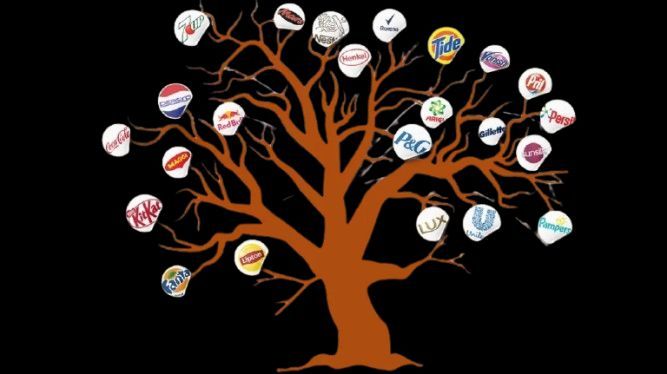
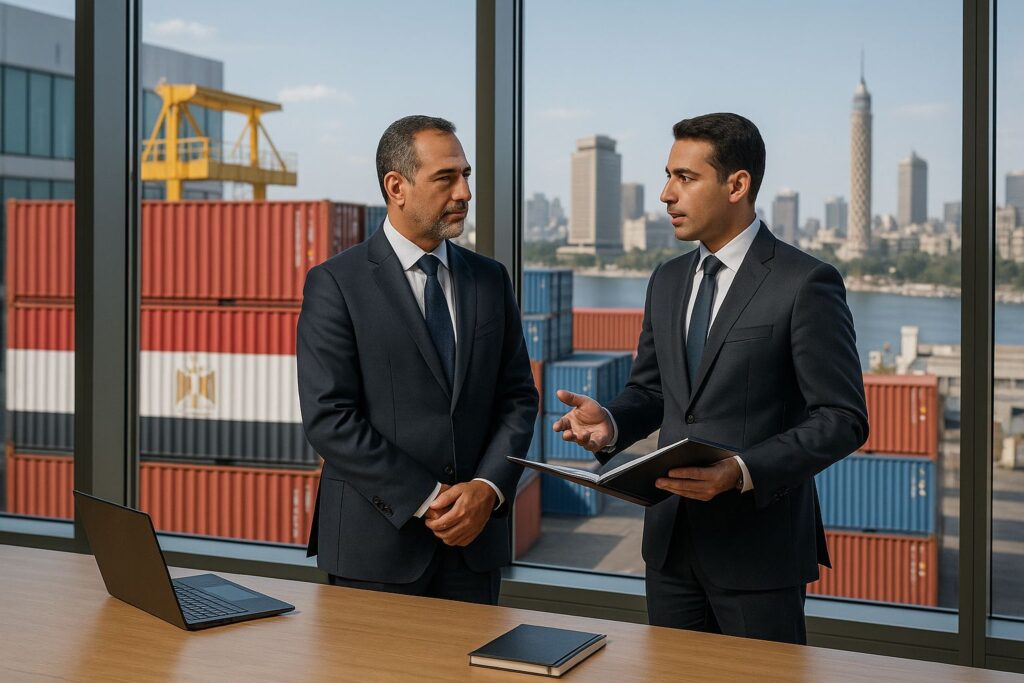
Now that you have a comprehensive understanding of the incredible opportunity that awaits you in the Libyan market, it’s time to take the next step. Partner with Eurovan Trading today and let us help you build a thriving and profitable business importing Indomie and other FMCG products to Libya. With our 25 years of experience, our deep understanding of the regional market, and our unwavering commitment to your success, we are the ideal partner to help you achieve your business goals.
Don’t let this opportunity pass you by. The Libyan market is ripe for the picking, and with Eurovan Trading by your side, you can be sure that you have the products, expertise, and support you need to succeed. Contact us today to get started on your journey to conquering the Libyan market!
Contact Information
- Company: Eurovan Trading
- Export Manager: Mr. Darrell Lock
- WhatsApp / Mobile: +201204440720
- Email: [email protected]
- Address: 5 el-Sheikh kamel Khadr ST– el Safarat distract Nasr city, Cairo , Egypt
Ready to start importing Indomie to Libya? Contact Eurovan Trading today and let our 25 years of FMCG export experience work for you!
📊 Market Analysis: Libya’s FMCG Import Landscape
The Libyan FMCG market represents one of the most promising opportunities in North Africa for international exporters. With a population of approximately 6.8 million people and a growing economy, Libya offers substantial potential for businesses looking to establish a foothold in the region. The country’s strategic location on the Mediterranean coast, combined with its oil wealth and improving political stability, makes it an attractive destination for FMCG imports.
Economic Indicators and Market Size
Libya’s economy has shown remarkable resilience and growth potential in recent years. The country’s GDP has been steadily recovering, with increased government spending on infrastructure and social programs driving consumer demand. The FMCG sector, in particular, has benefited from this economic recovery, with imports of food products, beverages, and consumer goods showing consistent growth.
The instant noodles segment, where Indomie holds a dominant position, represents a significant portion of the overall FMCG market. Market research indicates that the instant noodles market in Libya is valued at approximately $45 million annually, with projections showing continued growth of 8-12% per year. This growth is driven by urbanization, changing lifestyle patterns, and the increasing number of working professionals who seek convenient meal solutions.
Competitive Landscape Analysis
While Indomie enjoys a strong market position in Libya, understanding the competitive landscape is crucial for developing effective import strategies. The instant noodles market in Libya features several international brands, but Indomie’s combination of quality, affordability, and brand recognition gives it a significant competitive advantage.
Local distributors and retailers have consistently reported that Indomie products have higher turnover rates compared to competing brands. This is attributed to the brand’s strong marketing presence, consistent quality, and the variety of flavors that cater to local taste preferences. The brand’s ability to maintain competitive pricing while delivering superior taste has made it the preferred choice for Libyan consumers across all demographic segments.
Distribution Channels and Retail Landscape
The retail landscape in Libya has evolved significantly in recent years, with modern supermarkets and hypermarkets becoming increasingly important distribution channels. Major retail chains such as Carrefour, Spinneys, and local supermarket chains have expanded their presence across major cities including Tripoli, Benghazi, and Misrata.
Traditional retail channels, including small grocery stores and neighborhood shops, continue to play a vital role in product distribution, particularly in suburban and rural areas. These traditional channels often serve as the primary point of contact between consumers and FMCG products, making them essential partners for successful market penetration.
The emergence of e-commerce platforms and online grocery delivery services has also created new opportunities for FMCG distribution. While still in its early stages, online retail is gaining traction among younger consumers and urban professionals, presenting additional channels for Indomie distribution.
🌍 Regional Trade Dynamics and Opportunities
The broader regional context of North African trade presents numerous opportunities for businesses looking to expand beyond Libya. Egypt’s position as a manufacturing hub for the region, combined with improving trade relationships across North Africa, creates a favorable environment for FMCG exports.
Egypt as a Manufacturing and Export Hub
Egypt’s well-established manufacturing sector, particularly in food processing and FMCG production, positions the country as an ideal source for products destined for the Libyan market. The country’s modern production facilities, skilled workforce, and competitive manufacturing costs make it an attractive base for international brands looking to serve the North African market.
The Egyptian government’s focus on export promotion and trade facilitation has resulted in improved infrastructure, streamlined export procedures, and competitive shipping rates. These factors combine to make Egypt an increasingly attractive option for businesses seeking to import high-quality FMCG products into Libya.
Cross-Border Trade Facilitation
Recent improvements in cross-border trade facilitation between Egypt and Libya have significantly reduced the time and cost associated with importing goods. The implementation of electronic customs systems, simplified documentation requirements, and improved border infrastructure have all contributed to more efficient trade flows.
The establishment of dedicated trade lanes and the development of specialized logistics facilities at key border crossings have further enhanced the efficiency of Egypt-Libya trade. These improvements benefit importers by reducing transit times, minimizing the risk of delays, and lowering overall logistics costs.
Future Trade Prospects
The long-term prospects for Egypt-Libya trade are exceptionally positive, with both governments committed to strengthening economic ties and expanding bilateral trade. Planned infrastructure investments, including the development of new transportation corridors and the modernization of port facilities, will further enhance trade efficiency and reduce costs.
The potential for increased trade volumes is substantial, with current trade levels representing only a fraction of the total potential. As political stability continues to improve in Libya and economic growth accelerates, the demand for imported FMCG products is expected to grow significantly, creating substantial opportunities for forward-thinking businesses.
🎯 Strategic Marketing Approaches for the Libyan Market
Successfully importing Indomie to Libya requires more than just understanding import regulations and logistics; it demands a comprehensive marketing strategy that resonates with local consumers and builds lasting brand loyalty. The Libyan market presents unique opportunities and challenges that require tailored approaches to achieve maximum market penetration and profitability.
Understanding Consumer Behavior and Preferences
Libyan consumers exhibit distinct preferences and purchasing behaviors that must be understood and respected for successful market entry. Family-oriented purchasing decisions are common, with household heads often making bulk purchases to ensure adequate food supplies for extended families. This purchasing pattern creates opportunities for larger package sizes and family-oriented marketing messages.
The role of social influence in purchasing decisions cannot be understated in the Libyan market. Word-of-mouth recommendations, family traditions, and community preferences significantly impact consumer choices. Successful brands in Libya often leverage these social dynamics through community engagement, local partnerships, and culturally relevant marketing campaigns.
Price sensitivity varies across different consumer segments, with middle-class families representing the largest market for premium FMCG products. However, value-for-money remains a critical consideration across all segments, making Indomie’s combination of quality and affordability particularly appealing to Libyan consumers.
Digital Marketing and Social Media Engagement Importing Indomie to Libya
The digital landscape in Libya has evolved rapidly, with social media platforms becoming increasingly important for brand communication and consumer engagement. Facebook, Instagram, and WhatsApp are particularly popular among Libyan consumers, providing effective channels for brand promotion and customer interaction.
Successful digital marketing strategies in Libya often incorporate local cultural elements, Arabic language content, and region-specific promotions. User-generated content, including recipe sharing and product reviews, has proven particularly effective for food brands like Indomie, as it builds authentic connections with consumers and encourages brand advocacy.
The growing influence of social media influencers and food bloggers in Libya presents additional opportunities for brand promotion. Collaborations with local influencers who align with brand values can significantly enhance brand visibility and credibility among target consumer segments.
Traditional Marketing Channels and Community Engagement
While digital marketing is increasingly important, traditional marketing channels continue to play a vital role in the Libyan market. Television advertising, radio promotions, and print media remain effective ways to reach broad consumer audiences, particularly older demographics and rural populations.
Community engagement through local events, sponsorships, and cultural celebrations can significantly enhance brand recognition and consumer loyalty. Participating in local festivals, supporting community initiatives, and engaging with cultural traditions demonstrates brand commitment to the Libyan market and builds positive brand associations.
Point-of-sale marketing and in-store promotions are particularly effective in the Libyan retail environment. Eye-catching displays, product sampling, and promotional offers can significantly influence purchasing decisions and encourage trial among new consumers.
🔧 Operational Excellence and Quality Assurance Importing Indomie to Libya
Maintaining operational excellence throughout the import and distribution process is crucial for long-term success in the Libyan market. This encompasses everything from product quality assurance and supply chain management to customer service and after-sales support.
Supply Chain Management and Logistics Optimization
Effective supply chain management is essential for ensuring consistent product availability and maintaining competitive pricing in the Libyan market. This requires careful coordination between suppliers, logistics providers, and distribution partners to minimize delays and optimize costs.
Inventory management strategies must account for the unique characteristics of the Libyan market, including seasonal demand fluctuations, cultural events that impact consumption patterns, and potential supply chain disruptions. Maintaining adequate safety stock levels while minimizing carrying costs requires sophisticated planning and forecasting capabilities.
The development of strong relationships with local logistics providers and distribution partners is crucial for operational success. These partnerships enable better market intelligence, improved customer service, and more efficient problem resolution when challenges arise.
Quality Control and Product Standards
Maintaining consistent product quality is essential for building and preserving brand reputation in the Libyan market. This requires implementing comprehensive quality control procedures throughout the supply chain, from initial sourcing and manufacturing to final delivery to retail outlets.
Regular quality audits, product testing, and compliance monitoring ensure that all imported products meet both Libyan regulatory requirements and international quality standards. This proactive approach to quality management helps prevent costly recalls, regulatory issues, and damage to brand reputation.
Customer feedback mechanisms and quality monitoring systems provide valuable insights into product performance and consumer satisfaction. This information can be used to continuously improve products and services while addressing any quality concerns before they become significant issues.
Customer Service and Support Systems Importing Indomie to Libya
Excellent customer service is a key differentiator in the competitive Libyan FMCG market. This includes providing responsive support to retail partners, addressing consumer inquiries and concerns, and maintaining effective communication channels throughout the distribution network.
Training programs for retail partners and sales staff ensure that product knowledge and brand messaging are consistently communicated to consumers. This investment in education and support helps build stronger partnerships and improves overall market performance.
Establishing clear escalation procedures and response protocols for customer issues demonstrates professionalism and commitment to customer satisfaction. Quick resolution of problems and proactive communication can turn potential negative experiences into positive brand interactions.
📈 Financial Planning and Investment Considerations Importing Indomie to Libya
Successful entry into the Libyan market requires careful financial planning and strategic investment decisions. Understanding the financial implications of importing Indomie to Libya, including initial investment requirements, ongoing operational costs, and potential returns, is essential for making informed business decisions.
Initial Investment Requirements and Cost Analysis Importing Indomie to Libya
The initial investment required for importing Indomie to Libya includes several key components: product procurement costs, shipping and logistics expenses, customs duties and taxes, marketing and promotion budgets, and working capital requirements. Each of these elements must be carefully evaluated and budgeted to ensure adequate funding for successful market entry.
Product procurement costs vary depending on order quantities, payment terms, and supplier relationships. Larger initial orders often qualify for volume discounts but require higher upfront investment and increased inventory carrying costs. Balancing order size with cash flow requirements is crucial for maintaining financial stability during the market entry phase.
Shipping and logistics costs can be optimized through careful selection of transportation methods, consolidation of shipments, and negotiation of favorable rates with logistics providers. The new Egypt-Libya trade corridor offers opportunities for cost reduction and improved efficiency, making it an important consideration in financial planning.
Revenue Projections and Market Penetration Strategies Importing Indomie to Libya
Developing realistic revenue projections requires thorough market analysis, competitive assessment, and understanding of consumer demand patterns. Conservative estimates based on market research and industry benchmarks provide a solid foundation for financial planning while allowing for upside potential as market presence grows.
Market penetration strategies should be phased to allow for gradual expansion and learning from initial market experiences. Starting with major urban centers and gradually expanding to secondary markets allows for more manageable investment requirements and risk mitigation.
Pricing strategies must balance competitiveness with profitability, taking into account local market conditions, competitor pricing, and consumer price sensitivity. Regular price monitoring and adjustment capabilities ensure optimal positioning throughout different market phases.
Risk Management and Mitigation Strategies Importing Indomie to Libya
Political and economic risks in the Libyan market require careful consideration and appropriate mitigation strategies. These may include political risk insurance, diversified supplier relationships, and flexible operational structures that can adapt to changing market conditions.
Currency fluctuation risks can be managed through hedging strategies, local currency pricing arrangements, and careful timing of foreign exchange transactions. Working with experienced financial partners who understand regional markets can provide valuable guidance and risk management tools.
Operational risks, including supply chain disruptions, quality issues, and regulatory changes, can be mitigated through comprehensive contingency planning, strong supplier relationships, and proactive monitoring of market conditions and regulatory developments.
The partnership with Eurovan Trading provides significant risk mitigation benefits through their extensive experience, local market knowledge, and established relationships with suppliers, logistics providers, and regulatory authorities. This partnership reduces many of the risks associated with independent market entry while providing access to expertise and resources that would be difficult to develop independently.
🚀 Future Growth Opportunities and Expansion Strategies in Importing Indomie to Libya
The success of importing Indomie to Libya can serve as a foundation for broader expansion opportunities throughout the North African and Middle Eastern markets. Understanding these potential growth avenues and developing appropriate expansion strategies can significantly enhance long-term business value and market position.
Regional Expansion Opportunities Importing Indomie to Libya
The North African region presents numerous opportunities for businesses that have successfully established operations in Libya. Countries such as Tunisia, Algeria, and Morocco offer similar market characteristics and consumer preferences, making them natural expansion targets for proven FMCG products.
The experience gained in the Libyan market, including understanding of regional consumer preferences, regulatory requirements, and distribution channels, provides valuable insights that can be leveraged for expansion into neighboring markets. This regional expertise becomes a significant competitive advantage when competing against businesses without local market experience.
Cross-border synergies can be developed through shared logistics networks, consolidated purchasing arrangements, and coordinated marketing campaigns. These synergies can reduce costs, improve efficiency, and enhance overall market position across multiple countries.
Product Portfolio Expansion Importing Indomie to Libya
Success with Indomie imports can provide the foundation for expanding into related product categories and building a comprehensive FMCG portfolio. This diversification strategy reduces dependence on any single product while leveraging established distribution networks and customer relationships.
The introduction of complementary products, such as other instant food items, snacks, and beverages, can increase customer loyalty and improve overall profitability. Cross-selling opportunities and bundled promotions can enhance customer value while increasing average transaction sizes.
Private label development opportunities allow for higher margins and greater control over product positioning and marketing. Working with Eurovan Trading’s network of manufacturers can facilitate the development of custom products tailored specifically for the Libyan market.
Technology Integration and Digital Transformation in Importing Indomie to Libya
The integration of technology solutions can significantly enhance operational efficiency and customer service capabilities. This includes inventory management systems, customer relationship management platforms, and digital marketing tools that improve business performance and competitive positioning.
E-commerce capabilities and online ordering systems can expand market reach and improve customer convenience. As digital adoption continues to grow in Libya, businesses with strong online presence and capabilities will have significant advantages over traditional competitors.
Data analytics and business intelligence tools provide valuable insights into market trends, consumer behavior, and operational performance. These insights enable more informed decision-making and proactive strategy adjustments that improve overall business results.
The partnership with Eurovan Trading provides access to advanced technology solutions and digital capabilities that might otherwise require significant independent investment. This partnership approach allows for faster implementation and reduced technology risks while maintaining focus on core business activities.
Contact Eurovan Trading today to begin your journey into the lucrative Libyan FMCG market. With our 25 years of experience and comprehensive support services, we are your ideal partner for importing Indomie and building a successful business in Libya.
learn More:

